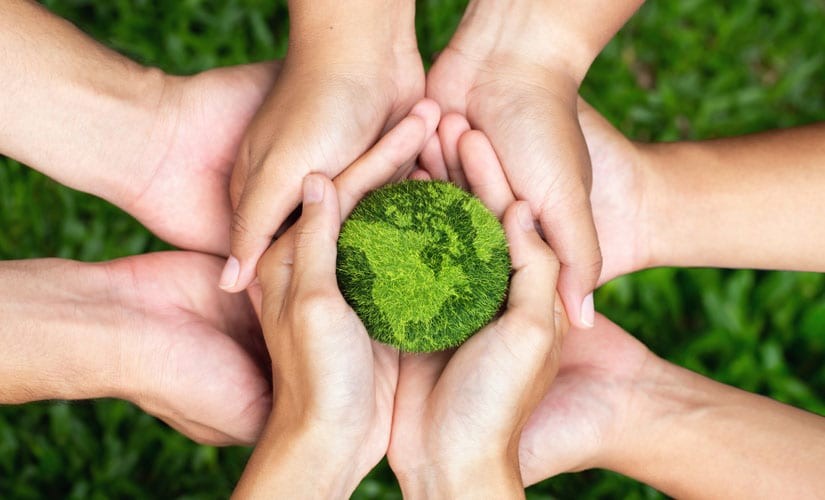
Aloha ‘Aina means love of the land. What would happen if one out of every six people on the planet took their commitment to the Earth more seriously? That's what The Earth Day Network intends to find out with their daring campaign, A Billion Acts of Green. They hope to register one billion environmental actions between now and Earth Summit 2012, a conference organized by the United Nations Commission on Sustainable Development, which will be held June of 2012 in Rio de Janeiro, Brazil. Individuals, organizations and corporations can all contribute by making a pledge on their website. One billion may seem like an audacious number to shoot for, but as of this writing, they've already registered over 15% of their goal: 66 million, 749 thousand, and 643 actions ranging from a pledge to eat more local food to a pledge to start a community garden.
You can create your own pledge or join an already created pledge, giving it more momentum as it climbs to the top of the homepage. Pledges cover a wide spectrum. Possible categories include green schools, environmental advocacy, energy, transportation, biodiversity, conservation, sustainable development, recycling and water. Many actions, however, fall into multiple categories. For instance, if you want to make a pledge to go vegetarian, you could enter it under advocacy if you plan to spread the word about the environmental benefits of a plant-based diet, or even if you plan to keep your dietary changes to yourself, you could enter it under energy conservation, water conservation or sustainable development, just to name a few.
The Earth Day Network entered its own pledge to eat less meat under the category of water conservation, writing that "Estimates on the number of gallons required to produce a pound of meat vary from just over 400 to 2500, compared to approximately 14 for a pound of wheat."1 Scientists at Cornell University studied ways to reduce our use of fossil fuel energy by 50% and concluded that the most effective method would be to reduce our consumption of meat and heavily processed foods.2 Inspired by this and other studies, fifty four people have already pledged to join the user Plantarian to "Eat a sustainable, healthy, plantarian, pure vegetarian or vegan diet" under the category of energy conservation. Noting that vegetarian and vegan diets may still include heavily refined or processed foods, Plantarian explains on their website (http://www.foodsforlife.org.uk/plantarian/index.html) that a plantarian diet "takes the healthiest bits of vegetarian and vegan to form a diet that promotes optimum health and sustainability."
Another user writes that they "plan to go vegetarian for 50 days from today to the 25th of April to reduce the pollution caused by meat processing and packing plants :)." Most recently the user myrtleturtle06 pledged to cook a vegetarian meal for her boyfriend and his family. These may seem like small efforts, but if you think about it, it's the small efforts from friends and family - sharing recipes, meals, information and encouragement - that help us make changes and stick with them. The authors of the Cornell study argued strongly that the power to change our global patterns of energy consumption lie with the individual consumer. What if one billion of us made the choice to exercise that power? The power of Aloha ‘Aina!
- Meatless Monday
- Pimentel et al. Reducing Energy Inputs in the US Food System. Human Ecology, 2008; DOI: 10.1007/s10745-008-9184-3